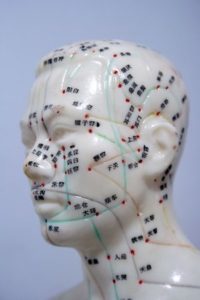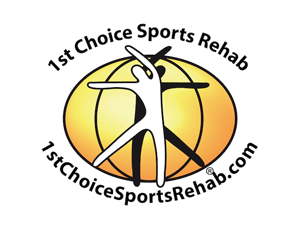 Acupuncture is one of many ways to address pain. At 1st Choice Sports Rehab, we have earned our reputation for resolving pain in the shortest time possible using the most effective treatment protocols for specific injuries. From traditional Chiropractic and Physical Therapy to soft tissue techniques such as Active Release Techniques (ART), Cupping, Graston, Fascial Distortion Model (FDM), Nerve release, Fascial manipulation, and Dry Needling, we select the best technique or combination of techniques to achieve optimal results for our patients.
Acupuncture is one of many ways to address pain. At 1st Choice Sports Rehab, we have earned our reputation for resolving pain in the shortest time possible using the most effective treatment protocols for specific injuries. From traditional Chiropractic and Physical Therapy to soft tissue techniques such as Active Release Techniques (ART), Cupping, Graston, Fascial Distortion Model (FDM), Nerve release, Fascial manipulation, and Dry Needling, we select the best technique or combination of techniques to achieve optimal results for our patients.
It is, therefore, our pleasure to welcome Dr. BoDanielle Park to our team. She is a medical doctor and traditional acupuncturist with over 22 years experience. Her expertise will provide our patients with another option to address health issues that have not been resolved elsewhere.
While many of our patients have experienced dry needling or other techniques mentioned above, some are not as familiar with acupuncture. This article not only discusses the similarities and differences between dry needling and acupuncture for pain relief but will also shed some light on how acupuncture can be used to address other health concerns.
Both acupuncture and dry needling use thin, often flexible needles to control pain. So what’s the difference? Some experts have described dry needling as a subset of acupuncture or a single chapter taken from the volumes of benefits acupuncture has provided for thousands of years.
Dry needling is a Western concept. The goal of this specific and localized treatment is to relax the muscle and reduce pain. Dr. Janet Travelle wrote extensively about the use of dry needling for trigger points in the book she co-authored in 1983, Myofascial Pain and Dysfunction: Trigger Point Manual. In her two-volume reference, she introduced the concept of trigger points and explained how dry needling was one of the techniques that could be used to treat them. In the years following her work, dry needling has been accepted as an effective method for treatment of muscle spasm, complex trigger points, or localized pain. Our physical therapist uses dry needling as one of the tools to address these issues without the use of drugs.
Where dry needling uses acupuncture needles locally at the site of a trigger point or spasmed muscle, acupuncture addresses conditions by assessing and treating multiple body systems that may be involved beyond the muscle spasm or pain.
Acupuncture is a comprehensive branch of traditional Chinese medicine that looks at the entire body and multiple systems to address symptoms. Symptoms such as dry mouth, headaches, muscle spasm, low back pain, chronic pain, or menopause, to name a few, respond well to this form of care.
Acupuncturists spend a minimum of four years studying the complex and interwoven bodily systems as well as the hundreds of points on the body associated with various organs or disorders. To the novice, the puzzle of acupuncture is the seemingly unrelated points of the body related to these multiple ailments. For example, a kidney problem might be addressed by placing the tiny needles into the sole of the foot.
While “how it works” has remained a mystery for centuries, the fact that acupuncture “does work” is undeniable. Recent research has given us better insight as to just how this ancient system of healing accomplishes its goals.
By stimulating nerve pathways that trigger the release of beta-endorphins, acupuncture lowers the patient’s sensation of pain. It has also been shown to affect neurohormonal pathways which may explain its effectiveness in women’s health and gastrointestinal disorders. In addition to this, its ability to alter the chemical pathways responsible for edema and inflammation may be at the core of its effect on reduction of swelling and improved rates of healing.
These and other benefits are what make acupuncture a more comprehensive system of healing beyond pain management.
If you are currently suffering from a condition that has failed to respond to traditional methods of care or you would like to try something different, consider acupuncture. Dr. Park would be happy to discuss your condition and how acupuncture might help. Call 4040-377-0011 to schedule an evaluation.
Decatur Office
2545 Lawrenceville Hwy
Suite 100
Decatur, GA 30033
404-377-0011
Johns Creek Office
9810-B Medlock Bridge Rd
Suite 104
Johns Creek, GA 30097
404-300-9931
